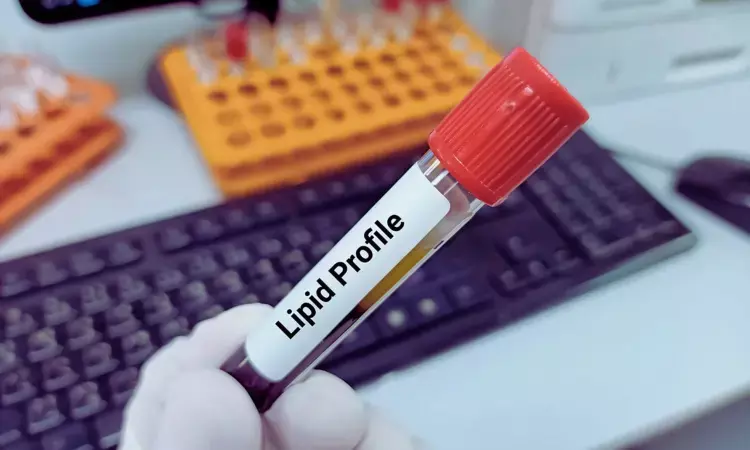- Home
- Medical news & Guidelines
- Anesthesiology
- Cardiology and CTVS
- Critical Care
- Dentistry
- Dermatology
- Diabetes and Endocrinology
- ENT
- Gastroenterology
- Medicine
- Nephrology
- Neurology
- Obstretics-Gynaecology
- Oncology
- Ophthalmology
- Orthopaedics
- Pediatrics-Neonatology
- Psychiatry
- Pulmonology
- Radiology
- Surgery
- Urology
- Laboratory Medicine
- Diet
- Nursing
- Paramedical
- Physiotherapy
- Health news
- Fact Check
- Bone Health Fact Check
- Brain Health Fact Check
- Cancer Related Fact Check
- Child Care Fact Check
- Dental and oral health fact check
- Diabetes and metabolic health fact check
- Diet and Nutrition Fact Check
- Eye and ENT Care Fact Check
- Fitness fact check
- Gut health fact check
- Heart health fact check
- Kidney health fact check
- Medical education fact check
- Men's health fact check
- Respiratory fact check
- Skin and hair care fact check
- Vaccine and Immunization fact check
- Women's health fact check
- AYUSH
- State News
- Andaman and Nicobar Islands
- Andhra Pradesh
- Arunachal Pradesh
- Assam
- Bihar
- Chandigarh
- Chattisgarh
- Dadra and Nagar Haveli
- Daman and Diu
- Delhi
- Goa
- Gujarat
- Haryana
- Himachal Pradesh
- Jammu & Kashmir
- Jharkhand
- Karnataka
- Kerala
- Ladakh
- Lakshadweep
- Madhya Pradesh
- Maharashtra
- Manipur
- Meghalaya
- Mizoram
- Nagaland
- Odisha
- Puducherry
- Punjab
- Rajasthan
- Sikkim
- Tamil Nadu
- Telangana
- Tripura
- Uttar Pradesh
- Uttrakhand
- West Bengal
- Medical Education
- Industry
Psoriasis Linked to dyslipidemia and ECG Abnormalities, states research

A new study published in the journal of Cureus showed that nearly three out of four psoriasis patients had dyslipidemia, which is most often defined as increased low-density lipoprotein (LDL) values.
Psoriasis has a complex pathogenesis that includes an aberrant immune response with high levels of cytokines such as interleukin-6 and tumor necrosis factor alpha (TNF-alpha). These affect systemic metabolic systems, such as lipid metabolism, in addition to making cutaneous lesions worse.
A common side effect is dyslipidemia, which may increase the risk of atherosclerotic disease and is correlated with the severity of psoriasis. Even after controlling for conventional risk variables, cardiovascular morbidity is noticeably greater in psoriasis patients. This highlights the necessity of aggressive cardiovascular assessment for those with psoriasis.
In this situation, electrocardiography (ECG) is a crucial non-invasive technique that can identify early cardiac anomalies that could point to underlying arrhythmias or ischemic heart disease. Examining the incidence and severity of lipid abnormalities and ECG alterations in psoriasis patients at a tertiary care hospital in comparison to controls was the aim of this study.
Over the course of two years (June 2022 to June 2024), 164 people (82 psoriasis patients and 82 controls) participated in comparative cross-sectional research. The psoriasis area and severity index (PASI) score was used to determine the severity of psoriasis. Patients who gave their assent had their electrocardiograms (ECGs) and fasting lipid levels measured.
The majority of the 82 patients (37, 45.1%) had mild psoriasis, and the mean PASI score was 6.89. When compared to controls (34, 41.4%), psoriasis patients had a considerably higher frequency of dyslipidemia (61, 74.3%), with increased low-density lipoprotein (LDL) values seen in the majority of cases (26, 31.71%).
While ECG alterations were more common in cases (33, 40.24%) than controls (25, 30.49%), they were not statistically significant. Among psoriasis patients, rhythm abnormalities (17, 20.7%) were the most often seen ECG change, followed by a conduction block (6, 7.3%) and ischemia changes (5, 6.1%).
Overall, patients with psoriasis should have their cardiovascular risk evaluated due to the high incidence of dyslipidemia, especially higher LDL values. Even though ECG abnormalities were shown to be more prevalent in psoriasis patients, additional research is needed to determine their significance.
Reference:
Rajendran, A., Harikumar, M. V., & Swaminathan, A. (2025). Lipid abnormalities and electrocardiographic changes in patients with psoriasis in a tertiary care hospital. Cureus. https://doi.org/10.7759/cureus.82164
Neuroscience Masters graduate
Jacinthlyn Sylvia, a Neuroscience Master's graduate from Chennai has worked extensively in deciphering the neurobiology of cognition and motor control in aging. She also has spread-out exposure to Neurosurgery from her Bachelor’s. She is currently involved in active Neuro-Oncology research. She is an upcoming neuroscientist with a fiery passion for writing. Her news cover at Medical Dialogues feature recent discoveries and updates from the healthcare and biomedical research fields. She can be reached at editorial@medicaldialogues.in
Dr Kamal Kant Kohli-MBBS, DTCD- a chest specialist with more than 30 years of practice and a flair for writing clinical articles, Dr Kamal Kant Kohli joined Medical Dialogues as a Chief Editor of Medical News. Besides writing articles, as an editor, he proofreads and verifies all the medical content published on Medical Dialogues including those coming from journals, studies,medical conferences,guidelines etc. Email: drkohli@medicaldialogues.in. Contact no. 011-43720751


